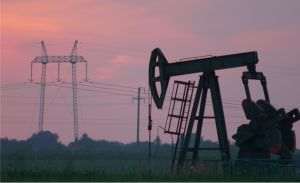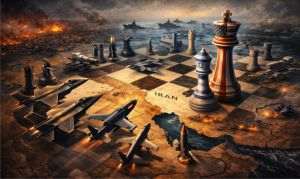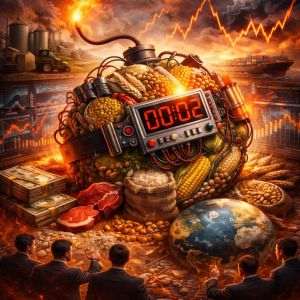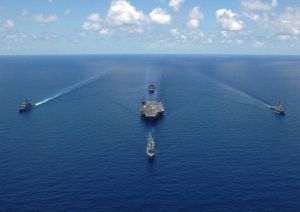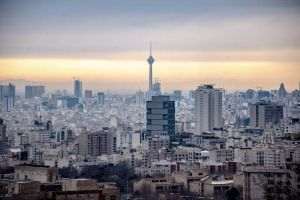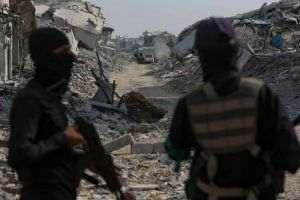Russia is trying to return to a position of international monopoly in the energy sector. Russia's global ambitions are expressed in its Energy Strategy drawn up for the period until 2030, which the government approved on November 13th, 2009.
"The strategic objective of Russia's foreign energy policy is the maximization of the use of its energy potential on the global market, the increase of its positions abroad and obtaining the highest possible benefits for the national economy", the quoted document says.
According to the document, by 2030, the export of energy resources will remain the major factor of growth for the Russian economy, but its impact will decrease: "The growth rates of the exports of energy will gradually slow down and it is to be expected that volume will stabilize by the end of the period.
This trend is in line with the country's long term economic policy, which is focusing on the diversification of the economic structure and on reducing its reliance on energy exports".
Russia's energy strategy until the year 2030 is an update of the document bearing the same name, drawn up until 2020.
In the context of the implementation of the energy strategy until 2020, exports of fuel and energy increased, and exports of oil products, instead of crude oil, are also on the rise, the new document states.
• Greater presence of the Russian companies abroad
Russia wants to increase its presence abroad, in three stages.
In the first stage, until 2015, cooperation with countries which buy Russian energy must be expanded, including through mutually profitable asset exchanges. Also, intergovernmental cooperation agreements are set to be signed, for the promotion of the interests of Russian energy companies.
In the second stage (2020-2022), action coordinated with other foreign economic departments programs should be developed, in order to strengthen Russia's position in the regional energy cooperation (with countries in the European Union, the Asian-Pacific region, the Middle East, Africa, Central and South-East Asia, Latin America, China).
Also, according to the energy strategy, Russia intends to lead a flexible policy in its relationships with transnational companies, as well as actively have Russian companies cooperate with new national corporations and with other players on the international market.
In the third stage of the strategy (until 2030), Russia is considering the creation, on a global level, of energy generation chains, with the participation of Russian companies and of companies from the countries which use Russian energy.
Another target is for Russia to have an energy company with a stable presence in the world's top three in the energy sector, and in the top five on a global level. Two of the Russian companies need to be among the ten largest, in the two rankings, according to the strategy.
For the entire duration of the implementation of the plan, the Russians will provide political and economic support to their energy companies abroad.
• Russia on the world energy markets
Russia's position is extremely important on the global hydrocarbons market, the Energy Strategy states.
According to the document, over the last few years, Russia held top positions in terms of oil output, and provided 12% of the oil sold all over the world. Over 80% of the Russian oil is exported in Europe and Russia's share of the European markets amounts to approximately 30%. The Russian oil products are also predominantly exported to European countries.
Russia ranks first in the world in terms of reserves (23% of the world reserves) and of the annual output of natural gas. The country provides 25% of the volume of natural gas traded, dominating the natural gas markets of the CIS and of Europe. Russian gas covers about 30% of the total consumption of European countries (including Turkey but excluding the Community of Independent States). With a unique gas transport system, Russia also plays an important part in carrying natural gas from Central Asia to Europe and to the countries in the Community of Independent States.
Russia ranks 2nd in terms of the size of its coal reserves (19% of the world reserves), 5th in terms of global production (5% of the world output) and also accounts for approximately 12% of the heating coal.
Russian nuclear electric energy industry represents 5% of the world nuclear energy market, 15% of the world nuclear reactors market, 45% of the world uranium enrichment market, and 15% of the world market of spent fuel conversion. Russia also provides 8% of the world production of natural uranium.
In the Energy Strategy, Russian officials state that Russia will undeniably remain the leading player on the world hydrocarbon market and will actively participate in the development of electricity and coal markets, while strengthening its position in world nuclear electric energy industry: "In this case, maintenance of Russia's stable relations with its traditional consumers of energy resources and development of equally stable relations on new energy markets will be one of the key principles.
Alongside with export of primary energy, a high emphasis will be put on export of highly processed energy products, as well as on developing the production thereof by Russian fuel and energy companies abroad".
• Europe and the countries of the Commonwealth of Independent States will remain the main markets
The energy markets in Europe and the countries of the Commonwealth of Independent States will remain the main sales markets for the Russian fuel and energy complex for the period for the period up to 2030: "As a result, measures will be implemented to reduce the transit risk, including the additional development and the large scale improvement of the export infrastructure to provide the supply of energy to the markets in question.
Measures will therefore be implemented to reduce transit risks, including further development and improvement of full-scale export infrastructure to ensure reliable supplies of Russian energy to these markets.
At the same time, the proportion of European energy markets in the total volume of Russian energy export will steadily decline due to export diversification to Eastern energy markets (China, Japan, Republic of Korea, other countries of the Asia-Pacific region). Moreover, by the end of the Strategy third implementation phase, the proportion of Eastern energy markets in the Russian energy export of liquid hydrocarbons (oil and oil products) should grow from the current 6 to 22-25%, while natural gas export should grow from 0 to 19-20%.
The Strategy also provides for a diversification of commodities structure of energy export on account of increased export of energy products with high added value (oil products, liquefied natural gas, engine fuel, production of gas chemistry and petrochemistry, electricity).
Russia will thus not only retain its position as the largest energy supplier in the world, but will also qualitatively change its presence on the world energy market by diversifying its commodities structure and destinations of energy export, actively developing new international energy business and increasing the presence of Russian companies abroad. This will make it possible to reduce the dependency of the Russian energy sector on export of energy resources to Europe, as well as increase profitability and efficiency of the international business of Russian energy companies without substantially increasing export of primary energy".
Russia intends to reach its goals with the help of diplomatic support for Russian energy companies abroad, as well as by getting involved in the international negotiation processes on matters of energy, providing a balance between the interests of importers, exporters and transit countries, in the international treaties; the development of the cooperation in the energy sector with expanding cooperation in the energy sector with countries in the Commonwealth of Independent States, the Eurasia Economic Union, North East Asia, the Shanghai Cooperation Organization and the European Union, together with other countries and international organizations; coordinating the activity on the international oil and gas markets with the members of the Organization of Petroleum Exporting Countries and of the Forum of Natural Gas Exporters; aid in the development of the United energy area Russia -Europe -Asia; assistance in attracting foreign investments; the development of new forms of international cooperation (including technological) in the energy sector.
• The main problems with Russia's energy resources:
- dropping demand and prices for energy resources, due to the global economic crisis;
- the insufficient diversification of the markets for Russia' energy resources and of the structure of its commodity exports;
- the politicization of the energy relations between Russia and the rest of the world;
- the low presence of the country's energy companies on the foreign markets.
The strategy also notes that in order to reach the objective of the country's foreign energy policy, the following must be achieved:
- the acknowledgment of Russia's national interests in the development of the system for the operation of the world energy markets, which aim at their predictable and stable development;
- the diversification of the export markets and of the structure of the commodities exports;
- ensuring stability on the energy markets, including guaranteed demand and certain prices for the major energy resources which are exported;
- the consolidation of the foreign positions of Russia's major energy companies;
- ensuring efficient international cooperation in the implementation of risky and complex projects in Russia.
• The investments needed for the development of the energy complex - 2.4-2.8 trillion dollars
The development of various industries of the fuel and energy complex, renewable energy, centralized heat supply, autonomous energy sector and energy saving will require large investments in the amount of US $2.4-2.8 trillion at constant prices of the year 2007, according to the strategy.
The major sources of investments will include own funds, profits of joint-stock companies (Russian (in the main) and foreign) with attraction of loans and assets raised from additional share issue. In the course of existing nuclear and hydroelectric power plants modernization and construction of new ones, as well as in the cases when, due to regional peculiarities, energy companies are not self-sufficient and investment-attractive, state assets will also be raised in accordance with approved program documents.
• Vladimir Putin: Russia's natural gas reserves, estimated at over 50,000 billion cubic meters
The natural gas reserves estimated following prospecting in Russia currently exceed 50,000 billion cubic meters, but they can prove a lot bigger, current Russian president Vladimir Putin recently said: "Today, the natural gas reserves following prospecting in Russia are the most important in the world and exceed 50,000 billion of cubic meters. There is no other region in the world that has as much natural gas as Russia, but that is not all. If we look at it more carefully, and we work more on what we have, they could be more than 50,000 billion".
The expansion of the drilling in the area of hydrocarbons still remains a relevant subject. "We have all the means for that, we need to set up reserves for the future, by doing geological surveys in new territories, including on the Arctic continental plateau", said Vladimir Putin, Russia's elected president.
The Arctic continental plateau includes 25% of the world's hydrocarbons reserves. The neighboring countries have the right to prospect the natural resources on their continental shelf.
•
The practice of the exchange of energy assets and joint ventures of foreign and Russian companies over the entire economic chain - from exploration and production to the distribution of energy resources to the end-consumer - is developing.
The transition to the market relations in the sector supplying natural gas in countries in the Commonwealth of Independent States is being accomplished.
Russia has an active dialog with other states, producers and major energy consumers, as well as with major regional unions (the European Union, the Eurasian Economic Community, etc.) and international organizations (Shanghai Cooperation Organization, Organization of Petroleum Exporting Countries, Gas Exporting Countries Forum, International Energy Agency, etc.)


